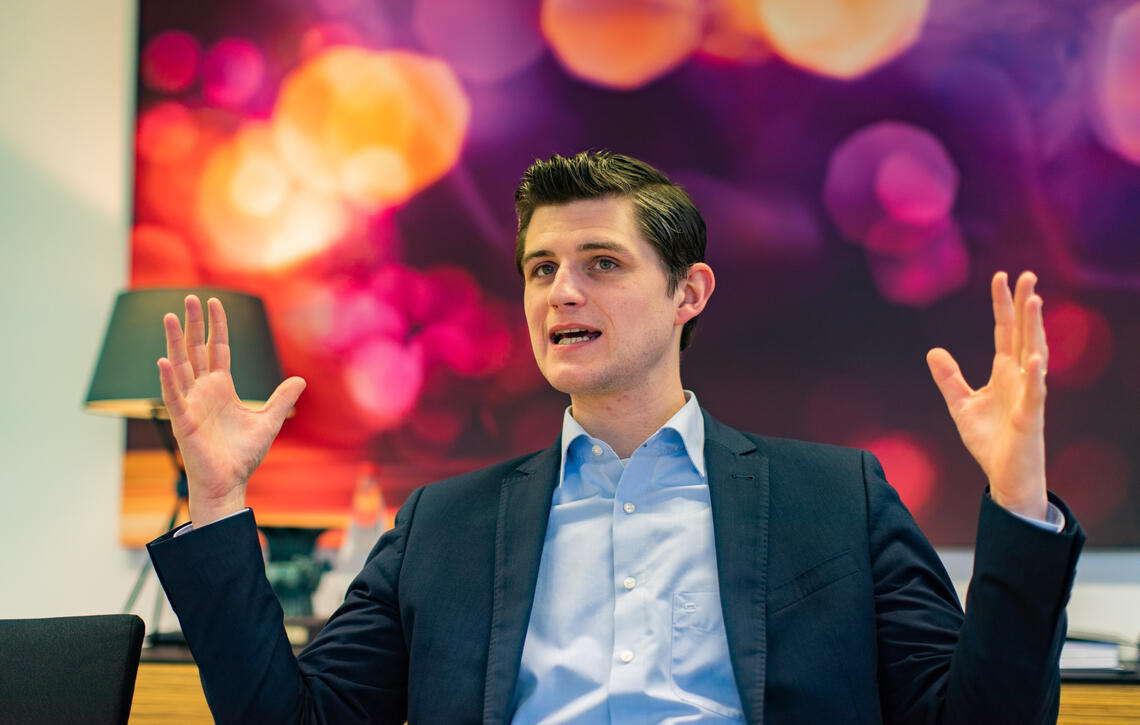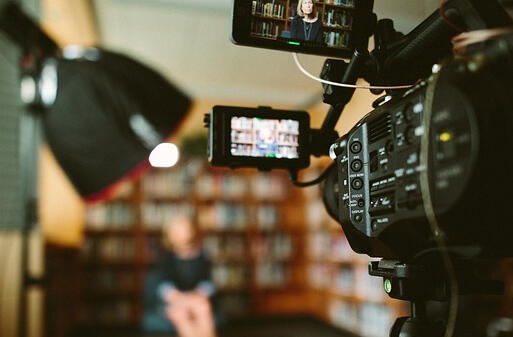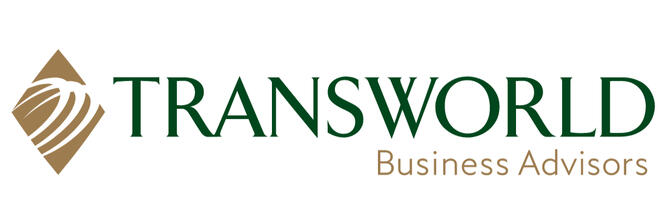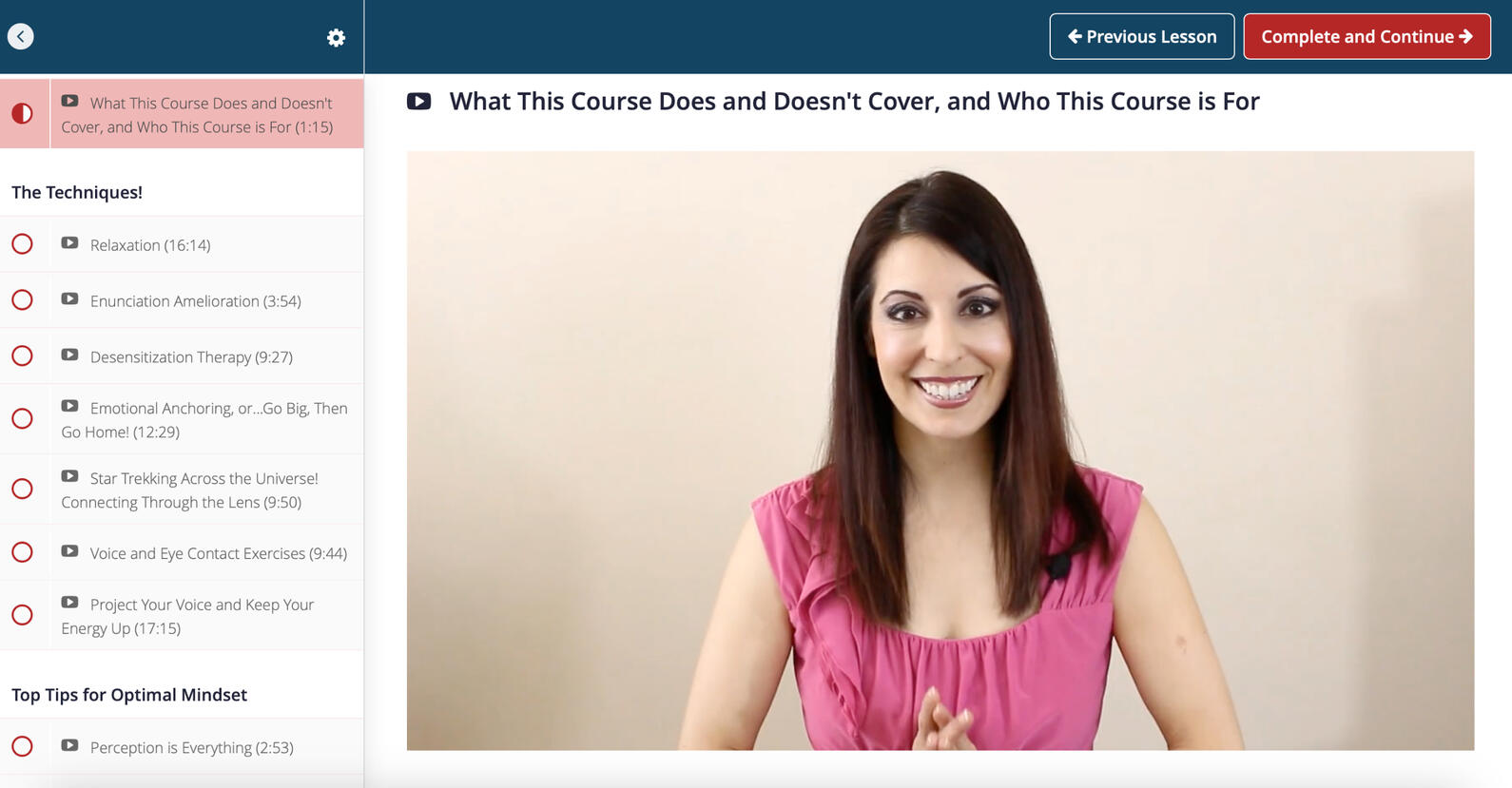Command your on-camera communication
Want to be taken seriously on camera? Learn to craft a commanding presence and connect authentically—so your audience trusts you, follows you, and buys from you.
Stand out from the crowd
Every human interaction, speaking engagement or video appearance is an opportunity to influence and connect with your audience in an authentic way. But when you feel awkward and self-conscious, your message will get lost, you can come off as unapproachable or uninteresting, and your brand’s reputation can be affected.A polished appearance is essential, but more important is the way you engage audience and elicit their trust. It's cliché for a reason: people buy from those they know, like and trust! By partnering with Connect & Captivate, you and your team will learn how to craft a powerful message and deliver it with confidence and the uniqueness that only YOU possess. You will show up as the expert that you are and watch your leads convert to clients.
What we do

Interpersonal EQ Skills
Do you have an employee who needs help participating in the fast-paced world of ideas and execution?Have you ever felt awkward at networking events? Unsure how to strike up an authentic rapport? Foundational emotional intelligence training breaks through these barriers!

Speaker Coaching
The same emotional connection and improv techniques that work wonders on camera will allow you to powerfully connect with a live audience. We also cover how to make an impactful entrance.

On-Camera Coaching
Emotional connection and feeling less stiff are top concerns with many clients. The acting and improv techniques I teach will help move past your blockers for authentic on-camera work.
Pamela DeRitis
Owner, Head Coach
Pamela draws on over fifteen years of experience in acting and improv to help you create authentic and influential communications with your peers, employees, or your audience. Through coaching that builds confidence and character, Pamela will help you become a trusted partner to your clients and customers, whether you are networking in person, giving a keynote speech, or creating video content to help sales conversions.Pamela’s coaching programs are formulated from her training in Meisner technique, Practical Aesthetics, improv, and other neuroscience-based acting techniques which have all shaped her life as an artist and entrepreneur. Pamela brings her unstoppable creative momentum to the table to help your businesses gain an EQ advantage and become captivating on camera, or off.
Choose your program
1:1 Coaching
Learn the leadership, communications, and storytelling skills coveted by CEOs and influencers.
Group Coaching
We will work with your team to master the art of communication and storytelling, focusing on dynamic relationship-building. Lose the starchy executive persona and connect with your audience powerfully!
Speaker Analysis
Send up to three videos and we will provide honest critique and feedback based on 15-plus years of experience in communicating on-camera and off.
What our clients say
Thank you!
I'm excited you're here! Your journey to becoming a powerful presence on camera and off starts today.
Our Captivate on Camera! course is packed full of practical, actionable exercises that will help beginners and more experienced pros deliver your message in a natural, compelling way on camera. You also get our Top Mindset Tips guaranteed to help you develop a winning mindset when it comes to delivering on camera!
You'll go from awkward to amazing on camera in just 4 weeks!
We Speak in Images
Every time you speak, you're not just stringing together words, you're painting a picture in the mind of your audience. This isn't just speaking; it's an art form.We often overlook the power that our words carry. Each phrase, each sentence, can evoke emotions, trigger visual imagery, and influence perceptions. It's a secret tool, yet so fundamental, that can transform our communication from mundane to memorable.Think about the last time someone's story left a lasting impression on you. Was it the words they used? Or was it the images those words conjured in your mind? We live in a world saturated with information, but it's the images we remember, the feelings they evoke, that stay with us.It's a powerful concept, yet so often overlooked.Imagine speaking in a way that doesn't just convey information but paints a vivid picture, engaging not just the mind but the heart of your audience. That's the essence of effective communication.It's not about using elaborate words or complex terminology. It's about understanding the profound impact of our words and using them to create images that resonate, inspire, and motivate.

This approach has been my secret weapon. By focusing on the images my words evoke, I've been able to connect more deeply, persuade more effectively, and leave a lasting impression.Next time you're preparing to speak, ask yourself: What images do I want to plant in the minds of my audience? How can my words sculpt their perception and emotion?The ability to communicate through images is a skill that can be honed. Challenge yourself to master this art, and watch the transformation in your interactions.Have you experienced a moment when words painted a powerful image in your mind? Let's inspire each other with stories of impactful communication.If you want to master the foundational skills that will help you deliver a compelling message on camera, check out my course Captivate on Camera!Beginning and more experienced video creators get tactical, actionable exercises that help develop the level of comfort needed to deliver your message in a natural, compelling way. In addition to the tactical exercises are seven Top Mindset Tips that will help you develop a winning mindset when it comes to delivering on camera.
You'll go from awkward to amazing on camera in just 4 weeks!
Why On-Camera Training for Business People?
Business people are turning more and more to video to get the message out about their enterprise. That means gaining the trust of potential clients or customers who may not have met you in person, and may never actually meet you. I have come to realize the power of an authentic, truthful on-camera delivery and I've adapted what I have learned to serve other business owners and video marketers. Here's the experience from my own acting career that made me realize the crucial role that solid on-camera training plays in earning your audience's trust and respect.The entertainment industry was starting to boom in Atlanta when I moved here in 2008. I came down for an IT job but always had a fascination with acting, and the more I heard about all the major movies being shot here the more I wanted to be part of the action. Cruising the internet one day I found as much information as I could about how to become an extra in the movies. Soon after I was called in for Zombieland, the Woody Harrelson movie that kicked off the cult of zombie productions that still thrives today. I played a pedestrian that was being chased by zombies. My shoot date was a cold, rainy Saturday in April. We were outside the whole day, I was soaked, my toes were going numb, and I was having a blast! I got to run, scream, fall, act terrified, get up and do it all over again for multiple takes in the freezing rain. I loved it!A couple more extra gigs later, I knew I wanted to do this acting thing for real. I found several casting websites for independent films, picked out some productions that sounded fun, and submitted myself to them. I didn't have a professional headshot and had almost no resume to speak of except for my extra work. I got called in to audition for an independent film about a man who had an abusive mother and his devolution into insanity. I got cast as the mother. It was actually a bigger part than I went in for, and while I wondered what they saw in me to cast me in that role, I was astounded that I actually got cast in the very first thing I auditioned for -- ever!

That was the turning point in my acting--and on-camera--career. I knew that if I was going to be cast in things and have actual lines and be called upon to perform, I needed to learn the craft. I put myself through a rigorous, 4+ year curriculum of acting training that included creating an emotional life, working with scene partners, on-camera presence, physicality, and so on. Being serious about acting meant being serious about my education, and since I had gone to college for a completely unrelated degree, I was going to have to put myself through school all over again.I had occasion to watch some of my scenes from that very first gig several years after we shot the film. By then I had a good amount of training under my belt. I watched my very first performance with a little amusement... and a lot of horror. I was terrible in that film! I do give myself kudos for going out and getting it in spite of not knowing what I was doing. When I shot that film I had zero experience and zero classwork, so I might be excused for the quality of work I produced back then. But watching that footage illuminated something else -- it made me realize how valuable my training has been, and how much people don't know what goes into giving a great on-camera performance, whether for a scripted series or a marketing video.For most of us humans, it is simply not as easy as "turn the camera on and speak." There's a "calibration" as I like to call it that needs to happen between your delivery and what the camera sees. Many folks get hung up on their words at the expense of sending their message. Some freeze up, others become overly hyper. Over time you can self-correct some of this stuff, but it usually takes a trained eye to shape a great delivery, just as it does with public speaking.Remember some simple rules:• It's not what you say, it's how you say it
• The words don't matter
• Make it personal
• Talk to one person and not "an audience"and you will be on your way to nailing your on-camera presence!
If you want to master the foundational skills that will help you deliver a compelling message on camera, check out my course Captivate on Camera!Beginning and more experienced video creators get tactical, actionable exercises that help develop the level of comfort needed to deliver your message in a natural, compelling way. In addition to the tactical exercises are seven Top Mindset Tips that will help you develop a winning mindset when it comes to delivering on camera.
You'll go from awkward to amazing on camera in just 4 weeks!
Overcoming Self-Consciousness: Your First Step to Being a Great Presenter
Self-consciousness is a common hurdle many people face when stepping into the spotlight to give a presentation. It can hinder your ability to connect with your audience, deliver your message effectively, and convey confidence. However, overcoming self-consciousness is not an insurmountable challenge. Here are five key strategies and techniques to help you conquer this barrier and become a great presenter.Understanding Self-ConsciousnessSelf-consciousness often stems from a fear of judgment or failure. When we focus too much on ourselves and how others perceive us, we become overly critical of our actions, which can lead to anxiety and nervousness. The key to overcoming self-consciousness lies in shifting our focus away from ourselves and towards our audience and message.Five Techniques to Overcome Self-Consciousness1. Embrace Your NervesIt’s natural to feel nervous before a presentation. Instead of trying to eliminate your nerves, acknowledge them. Understand that feeling nervous is a sign that you care about your performance and the message you want to convey. Use this energy to fuel your enthusiasm and passion for the topic. A slight adrenaline rush can actually enhance your performance, making you more alert and engaged.2. Shift Your FocusOne effective way to combat self-consciousness is to shift your focus from yourself to your audience. Concentrate on delivering value to your listeners. Think about how your message can benefit them, solve their problems, or provide new insights. When you prioritize your audience’s needs and interests, you naturally become less preoccupied with your own insecurities.3. Reframe Your Internal TalkThe way you talk to yourself has a significant impact on your confidence and performance. Negative self-talk, such as "I'm not good enough" or "I'll mess up," can heighten self-consciousness and anxiety. To overcome this, practice reframing your internal dialogue. Replace negative thoughts with positive affirmations. Instead of saying, "I'm not prepared," tell yourself, "I have prepared thoroughly and I am ready." Instead of thinking, "What if I make a mistake?" remind yourself, "Mistakes are opportunities to learn and grow." By consciously shifting your internal talk, you can foster a more positive and confident mindset.

4. Prepare ThoroughlyPreparation is crucial for building confidence and reducing self-consciousness. Know your material inside and out. Rehearse your presentation multiple times, preferably in front of a mirror or a trusted friend. The more familiar you are with your content, the less you will worry about making mistakes. Additionally, being well-prepared allows you to focus more on engaging with your audience rather than worrying about what to say next.5. Help Others RegularlyDeveloping a habit of helping others can shift your focus away from self-consciousness. When you make it a priority to assist and support those around you, whether in professional or personal contexts, you build empathy and connect more deeply with others. This outward focus can diminish self-centered thoughts and insecurities. By actively engaging in acts of kindness and support, you cultivate a mindset that values connection and contribution, which can be incredibly empowering when you step up to present. Remember, your presentation is an opportunity to help your audience, share valuable insights, and make a positive impact.ConclusionOvercoming self-consciousness is the first step toward becoming a great presenter. By embracing your nerves, shifting your focus to your audience, reframing your internal talk, preparing thoroughly, and helping others regularly, you can build the confidence needed to deliver an impactful and engaging presentation. Remember, the key is to focus less on yourself and more on the value you are providing to your audience. With time and practice, you'll find that presenting can become a rewarding and fulfilling experience.
If you want to master the foundational skills that will help you deliver a compelling message on camera, check out my course Captivate on Camera!Beginning and more experienced video creators get tactical, actionable exercises that help develop the level of comfort needed to deliver your message in a natural, compelling way. In addition to the tactical exercises are seven Top Mindset Tips that will help you develop a winning mindset when it comes to delivering on camera.
You'll go from awkward to amazing on camera in just 4 weeks!










